The Independent's journalism is supported by our readers. When you purchase through links on our site, we may earn commission. Why trust us?
10 best cookbooks you’ll return to time and again
While there’s no Nigel or Nigella on this list, these recipes will leave you wanting more
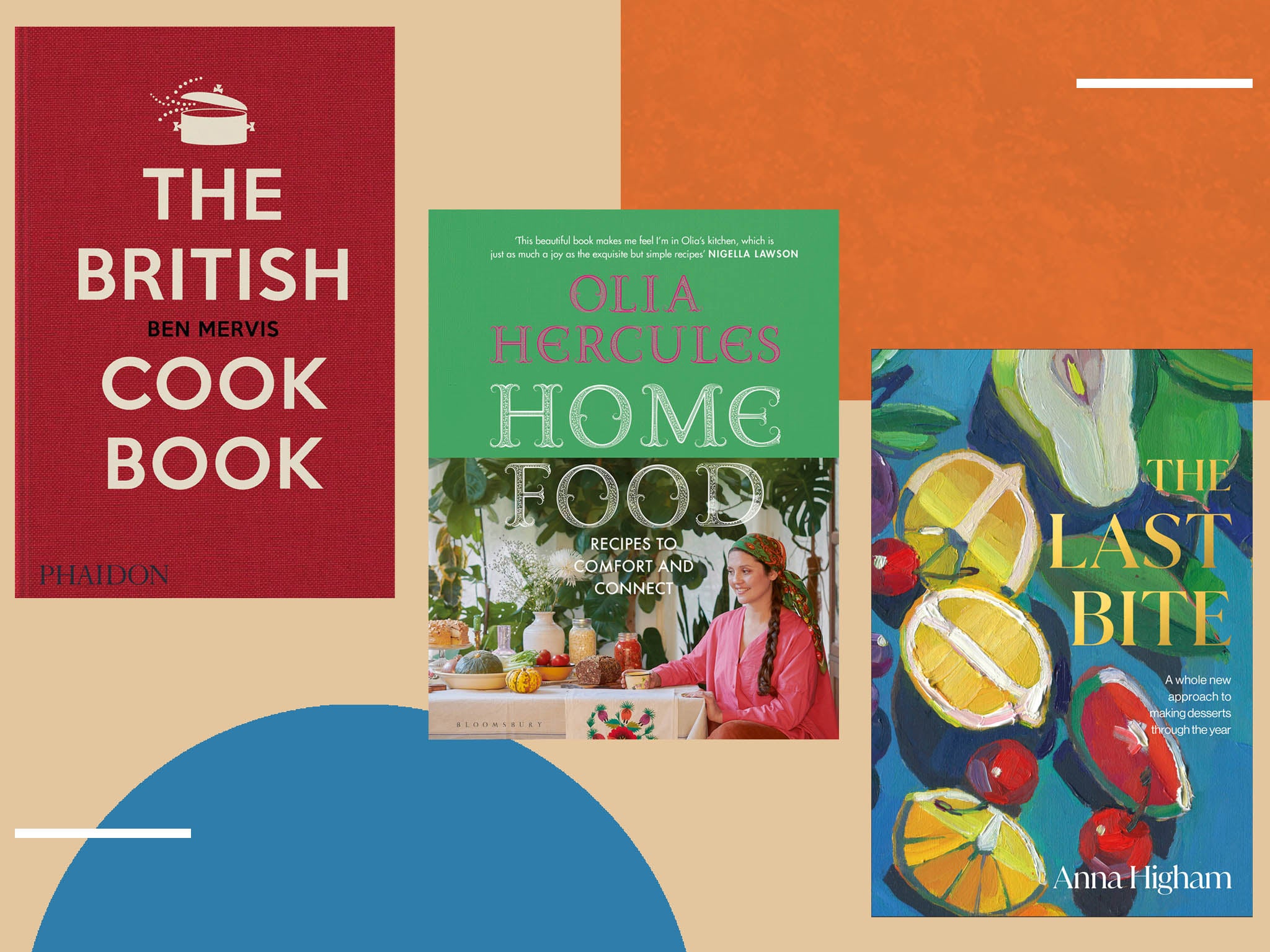
Whether you’re partial to cheese, vegan-curious, accomplished baker in need of a challenge, or just after recipes that will breathe new life into your repertoire, there’s a cookbook for you. Owing to the sheer breadth of these cookery tomes, it may be difficult to narrow them down to what you’ll find most useful, but that’s where this guide can help.
If you’re looking for dishes to serve up while entertaining, you need to flick through something like Cooking: Simply and Well, for One or Many by Jeremy Lee. Meanwhile, a cookery tome such as Ixta Belfrage’s Mezcla: Recipes to Excite will lend ample inspiration when it comes to colourful, adventurous dishes. But if it’s vegan and a little vegetarian food you’re looking for, take a look at Georgina Hayden’s Nistisima, and find recipes from Cyprus, Greece, Syria, and beyond.
What makes a cookbook a firm favourite for you will depend on the foods that make your mouth water, but more often, some of the best cookbooks worth keeping on stand-by in the kitchen will take you beyond the ingredients on the plate, to the culture and history behind it. Here, we’ve shared the best cookbooks that we’ve tried and tested.
How we tested
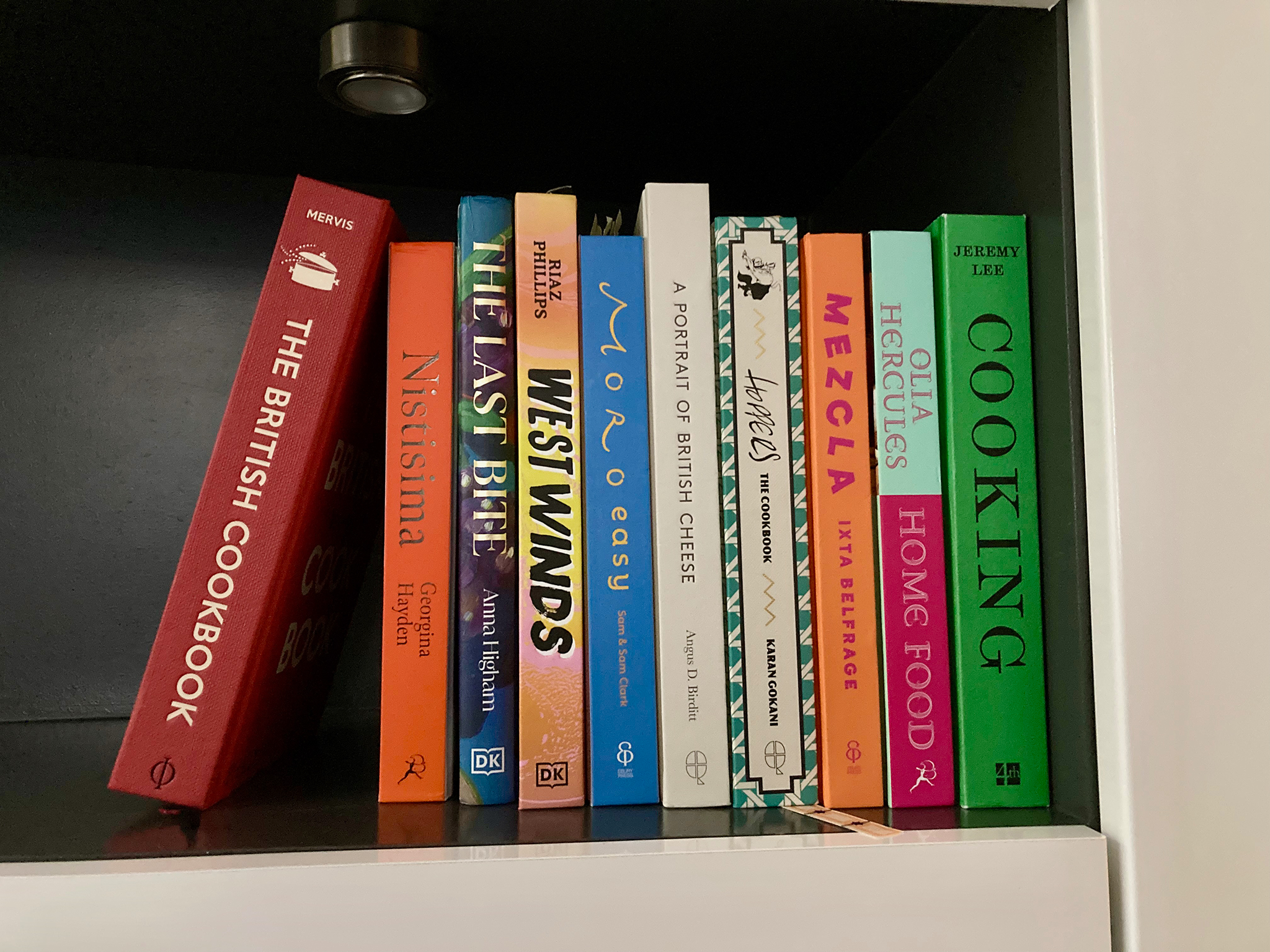
Choosing just 10 cookbooks was a torturous exercise of fervid comparison and agonised debate. We were on the lookout for books that will be absolute keepers – the ones you’ll still be using a decade from now. We valued those likely to top wish lists, too – books that would produce a thrill of excitement when the fancy wrapping paper was torn off.
We also highly rated books that broke new ground, that showed originality, great writing and gave fresh insight into food and culture. It goes without saying the recipes tested had to taste great, too.
The result? A round-up of cookbooks to see you peacefully into the new year and the years to come.
The best cookbooks for 2024 are:
- Best cookbook overall – ‘Home Food: Recipes to Comfort and Connect’ by Olia Hercules, published by Bloomsbury: £18.38, Amazon.co.uk
- Best for a slice of social history – ‘West Winds: Recipes, History and Tales from Jamaica’ by Riaz Phillips, published by DK: £18.38, Amazon.co.uk
- Best for keen entertainers – ‘Cooking: Simply and Well, for One or Many’ by Jeremy Lee, published by 4th Estate: £25, Amazon.co.uk
- Best for adventurous cooks – ‘Mezcla: Recipes to Excite’ by Ixta Belfrage, published by Ebury Press: £22.59, Amazon.co.uk
- Best for cheese-lovers – ‘A Portrait of British Cheese’ by Angus D. Birditt, published by Quadrille: £18.52, Amazon.co.uk
1‘Home Food: Recipes to Comfort and Connect’ by Olia Hercules, published by Bloomsbury

- Best Cookbook overall
- Cuisine Comfort food with influences from Ukraine, Cyprus, Italy and beyond
- Recipes 100
Olia Hercules’ name will be familiar to many food lovers. When Putin’s troops invaded Ukraine, the world changed – and Hercules’ life was transformed – she is now an activist as well as a cook. #CookforUkraine, set up by Hercules and several colleagues, has raised almost £800,000 for victims of the war, and she keeps her 148,000 Instagram followers up to date on the conflict with regular updates.
Home Food is her fourth book. The collection of essays and 100 recipes, photographed by her husband, Joe Woodhouse, is her most personal and heartfelt to date. Dishes span Eastern Europe, Central Asia, Italy, India, Cyprus and beyond (her recipe for dark greens with nettles and yoghurt was simple but stunning). Some recipes are brought to life by QR codes linked to videos showing techniques, such as making brown butter and hand-rolling pasta.
The driving force behind Home Food is the sense of connection – to family, friends, community – that cooking can bring in times of hardship, and it thoroughly deserves a place on every cook’s shelf.
Read the eBook now:
- Apple Books: £17.99, Apple.com
- Kindle: £11.83, Amazon.co.uk
2‘West Winds: Recipes, History and Tales from Jamaica’ by Riaz Phillips, published by DK
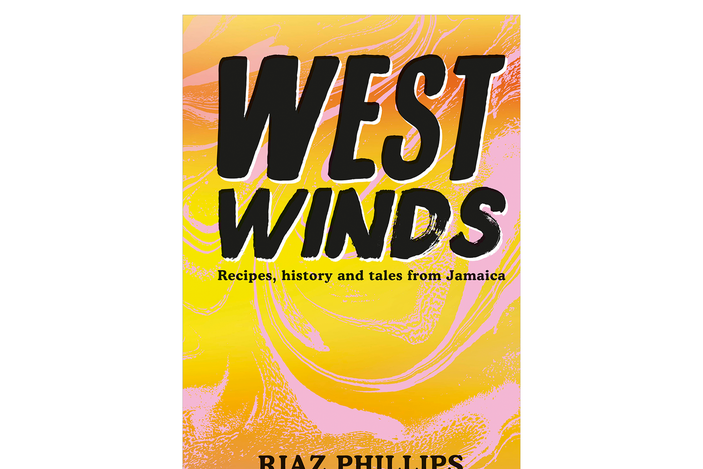
- Best For a slice of social history
- Cuisine Caribbean
- Recipes Over 100
Riaz Phillips is a rising star in the food-writing world, and this book blazes a trail for Caribbean food – Jamaican food in particular. His first book, Belly Full: Caribbean Food in the UK, earned him a Young British Foodie Award and this, his debut cookbook, has already won the Jane Grigson Trust Award for first-time cookbook authors.
Phillips is a skilled and engaging writer, and this book is far more than a collection of recipes. Phillips takes his research seriously, and his well-observed essays cover topics as broad as the history of Christianity in the Caribbean, the bittersweet legacy of sugar, and the fundamental importance of soup to the islands’ cooks. It’s a joy to read: informative, eloquent and engaging.
The recipes are as broad-ranging as the book’s bibliography, going well beyond Carnival favourites such as jerk chicken and ackee and saltfish (though there are recipes for those too). Escovitch fish, Phillips tells us in the detailed headnote, “derives from the Spanish word ‘escabeche’, which in turn is believed to come from the Arabic iskabej, meaning ‘pickled fish’.” Sharp with vinegar and zingy with Scotch bonnets, it’s a recipe that demonstrates the islands’ complex social history in a single delicious dish.
Read the eBook now:
- Apple Books: £9.99, Apple.com
- Kindle: £9.99, Amazon.co.uk
3‘Cooking Simply and Well, for One or Many’ by Jeremy Lee, published by 4th Estate

- Best For keen entertainers
- Cuisine Simple and traditional
- Recipes Unspecified
Jeremy Lee is that rare thing: a talented chef who also happens to be a great writer. The Dundee-born chef, who’s been at Quo Vadis restaurant in London’s Soho since 2012, has helped shape contemporary British cooking. He’s worked with Simon Hopkinson and the late, great Alastair Little, and he wrote a food column for a national broadsheet for years. So, why did it take him so long to write a cookbook?
The pandemic may have played a part. “Those warm, comforting, nourishing dishes that I made during lockdown form the heart of the book,” he writes. Better late than never, we say.
Chapters on blood oranges, potatoes, offal and chocolate are woven around essays that draw on Lee’s childhood in Scotland, as well as his lengthy career. His recipes resonate with conviviality. Profiteroles, steamed puddings, hearty chops and savoury pies are among the soothing yet sophisticated recipes. The Arbroath smokies with sea purslane, green beans and potatoes recipe we tested was a success, even without the hard-to-find sea purslane.
Lee assumes a bit of kitchen know-how on the part of the reader, and these are dishes that reward time spent in the kitchen. Many serve six to eight, making them ideal dinner-party fare.
Lee’s delicious prose is like a long, slow braise, making this is a cookbook that doubles as bedside reading.
Read the eBook now:
- Apple Books: £14.99, Apple.com
- Kindle: £14.99, Amazon.co.uk
4‘Nistisima’ by Georgina Hayden, published by Bloomsbury

- Best For creative meat-free cooking
- Cuisine Vegan
- Recipes 120
Once in a while, a new cookbook makes you think “Genius!” This is one of those – a collection of mainly vegan recipes from countries where abstaining from meat for religious or cultural reasons is the norm. The Greek word ‘nistisima’ is used to describe foods that adhere to the Orthodox church’s fasting rules and are made without meat or dairy (people following the Orthodox faith may abstain from meat or dairy for up 210 days each year). The recipes come from Cyprus (where Hayden’s family are from), Greece, Russia, Romania, Turkey, Syria, Jordan, Serbia, Armenia and beyond.
Nistisima is carefully researched and lovingly written, and the recipes are excellent. Middle Eastern batata harra couldn’t be easier – you roast a pan of cubed potatoes until crisp, make a dressing of slow-cooked onion and garlic, spices, fresh coriander and lemon juice, and mix to serve.
There is no moralising or proselytising here. This refreshing book might just make anyone who’s sceptical about eating vegan food re-think plant-based cooking.
Read the eBook now:
- Apple Books: £17.99, Apple.com
- Kindle: £11.83, Amazon.co.uk
5‘The British Cookbook’ by Ben Mervis, published by Phaidon

- Best For rethinking British food
- Cuisine British
- Recipes Over 550
If you think you know all there is to know about British food, this book might make you think again. Four years in the making, The British Cookbook is a meticulously researched, 460-page love letter to British cuisine.
Ironically, perhaps, Mervis isn’t British. Born and brought up in Pennsylvania, he moved to the UK for university, fell in love with the place and stayed. He now lives in Glasgow, and part of what keeps him here is the food.
Mervis employed the expertise of food historian Dr Neil Buttery and food writers Elisabeth Luard, Sumayya Usmani, Nichola Fletcher and others in writing this book, which delves deeply into regional food history (Scottish recipes are particularly strong). The 500-plus recipes go well beyond the usual roll call of British fare, and Mervis makes space for contemporary dishes such as chicken madras and jerk chicken, too.
The recipe we tested, mussels with bacon and cream, was simple and satisfying – although those who like a kitchen challenge will find plenty to interest them. Mervis really understands and appreciates British food, and his perspective is thought-provoking – enticing readers to enjoy all its delicious quirks and nuances.
6‘Moro Easy’ by Sam and Sam Clark, published by Ebury Press

- Best For Moro devotees
- Cuisine Moro
- Recipes 120
The fifth cookbook from Sam and Sam Clark will put smiles on the faces of Moro fans. The Clarks are the husband-and-wife team behind Moro, the iconic London restaurant that opened in 1997 and has made Moorish cooking a thing, as well as training a generation of chefs – Oliver Rowe and Jacob Kenedy among them.
In Moro Easy, flavours stay true to the cooking of southern Spain, the Levant and Turkey, which now defines the Clarks’ cooking, but accessibility is key. Ingredients lists are brief and the instructions snappy – mostly kept to one page. The book is about “not too many ingredients, and uncomplicated methods”, say the authors.
This is a straight-up recipe collection, with narrative kept to a minimum. Recipes are based on top-quality ingredients, simple cooking methods and a few shortcuts. Labneh, for example, is made by mixing Greek yoghurt and cream cheese. The resulting dish of labneh, sun-dried tomato, coriander and fennel seeds was ready in a flash and tasted sensational, as did fried potatoes with za’ater, peppers and feta. The dishes in chapters “Easy toasts”, “Easy dairy” and “Easy one-pots” give rewarding results to the time-poor.
Read the eBook now:
- Apple Books: £12.99, Apple.com
- Kindle: £12.99, Amazon.co.uk
7‘Mezcla: Recipes to Excite’ by Ixta Belfrage, published by Ebury Press

- Best For adventurous cooks
- Cuisine Italian, Brazilian, Moroccan and more
- Recipes 100
The word “mezcla” means “mix” or “blend” in Spanish, and it’s a term that aptly describes the author’s background and cooking style. The daughter of a well-known wine writer, Belfrage has family roots in Brazil and Mexico, and lived in Italy as a youngster. Fans of Yotam Ottolenghi may already be familiar with the author’s name, as Belfrage worked at NOPI and at Ottolenghi’s Test Kitchen, and co-authored Flavour with the chef and restaurateur in 2020.
The colourful recipes in this, her debut cookbook, sing with big, bold flavours – they’re a hedonistic mash-up, combining tastes and textures from far-flung places. A recipe we tested for chicken with pineapple and ’nduja successfully married ingredients from Calabria and the tropics in a dead-simple traybake that was so delectable we made the dish twice. There’s an emphasis on vegetable-first recipes and, for the most part, cooking instructions are kept short.
This is a book for have-a-go cooks with a well-stocked store cupboard and a taste for adventure.
Read the eBook now:
- Apple Books: £12.99, Apple.com
- Kindle: £12.99, Amazon.co.uk
8‘The Last Bite’ by Anna Higham, published by DK

- Best For bakers, old hands and newbies
- Cuisine Dessert and pastries
- Recipes Over 190
Pastry chef Anna Higham has a dream CV. She’s plied her trade at some of London’s best kitchens, including River Café, Gordon Ramsay Group, Lyle’s and Flor. Yet this is not an intimidating, hidebound rulebook for would-be confectioners. Instead, Higham encourages readers – especially those who are intimidated by baking and desserts – to approach desserts in the same way they would savoury dishes. It’s “just cooking”, she says, to be approached in “the same way as making a bowl of pasta or roasting a chicken”. The key to success, she says, is to learn to trust your instincts, and her recipe instructions are refreshingly free of bossiness – she actively encourages experimentation.
Unusually for a baking book, this one is divided up by season and the fruits that are best throughout the growing cycle – strawberries, figs, blood oranges and rhubarb, as well as chocolate, nuts, flowers and herbs. Higham has a flair for putting together tastes and textures, and her recipe for olive oil and ricotta cake was gloriously squidgy and moreish.
This is a book that will suit Bake Off fans and experienced bakers keen to build on their skills, but there is plenty of clear-eyed advice here for bakers who are just starting out, too.
Read the eBook now:
- Apple Books: £8.99, Apple.com
- Kindle: £8.99, Amazon.co.uk
9‘A Portrait of British Cheese’ by Angus D. Birditt, published by Quadrille

- Best For cheese-lovers
- Cuisine British cheese
- Recipes 30
Angus D. Birditt travelled from the Isle of Mull to Jersey and Northern Ireland, researching and photographing this book. Profiled are 30 of the UK’s top artisan and farmhouse cheesemakers, among them Fen Farm Dairy in Suffolk (maker of Baron Bigod), Charles Martell & Son in Gloucestershire (maker of the wonderfully named Stinking Bishop) and Sparkenhoe Farm in Warwickshire (which makes Shropshire Blue and an artisanal Red Leicester).
The book is part reference and part recipe book, with chapters on the history of British cheese chronicling the industry’s many ups and downs, and the basics of how cheese is made. Birditt cleverly pieces together the ways in which the landscape, the animals, the local community – and the cheesemakers themselves – contribute to each cheese’s individual taste and character.
Recipes range from the intriguing (Stichelton ice cream with candied apple) to the straightforwardly pleasing (Lincolnshire poacher soufflé, which rose to the occasion when tested). It’s a snapshot of where British cheese is now, and where it may be headed as farming practices change and the industry matures. It will appeal to anyone whose cheesy interests lie beyond mild cheddar.
Read the eBook now:
- Apple Books: £12.99, Apple.com
- Kindle: £8.96, Amazon.co.uk
10‘Hoppers: The Cookbook’ by Karan Gokani, published by Quadrille

- Best For those who like it spicy
- Cuisine Sri Lankan
- Recipes Unspecified
Since the first Hoppers launched in Soho in 2015, it’s helped to put Sri Lankan cooking on the radar of London’s fashionable restaurant-goers. This cookbook, written by the restaurant’s co-founder and creative director, gives home cooks the tools and recipes to take cooking matters into their own hands by trying Sri Lankan dishes at home.
The book is a freewheeling foray into the island nation’s food culture, with beautiful photographs shot on location in Sri Lanka, as well as favourite dishes from the restaurants themselves, including the hoppers (pillowy rice and coconut pancakes) for which it is named.
The book gives readers a thorough grounding in the country’s signature dishes, from lamprais, a multi-course meal wrapped in a banana leaf and steamed, to the myriad sambols (relishes) served with Sri Lankan meals.
Devilled dishes, influenced by Chinese cuisine, says Gokani, are another signature. The devilled paneer version we tested was hot, sweet, and layered with spice but deceptively easy to put together. Who needs a takeaway?
Read the eBook now:
- Apple Books: £12.99, Apple.com
- Kindle: £8.96, Amazon.co.uk
The verdict: Best cookbooks
In 2022, cookbook sales were down somewhat since the height of the pandemic, but sales remain buoyant and there is a multitude of books for every level of cook. The books that made it into our review go beyond just recipes and were chosen for their excellent writing, the knowledge imparted and the pleasure given to readers, most notably in books by Olia Hercules, our best buy, and Riaz Phillips. These books (and the others in our round-up) will earn their place on bookshelves – and in the kitchen – for years to come.
Books such as Ben Mervis’s The British Cookbook, Jeremy Lee’s Cooking Simply and Well and Angus D. Birditt’s A Portrait of British Cheese highlight the best of British food and cooking, while Georgina Hayden’s Nistisima and Anna Higham’s The Last Bite highlight exceptional vegan cooking and baking, respectively.
The author of this review was a proofreader on ‘The British Cookbook’ and ‘A Portrait of British Cheese’.
Cook with the planet in mind, and try the best sustainable cookbooks
Voucher Codes
















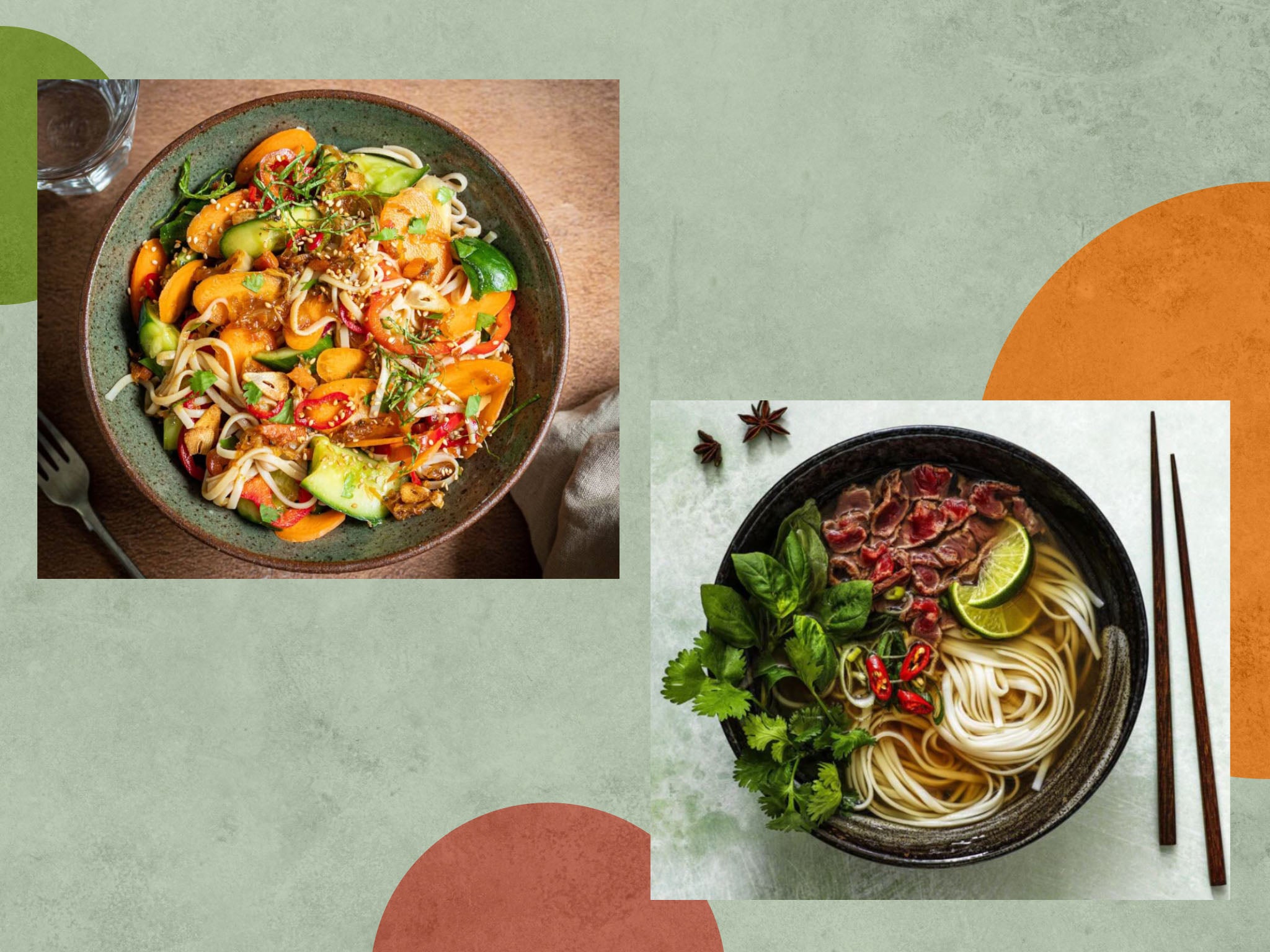
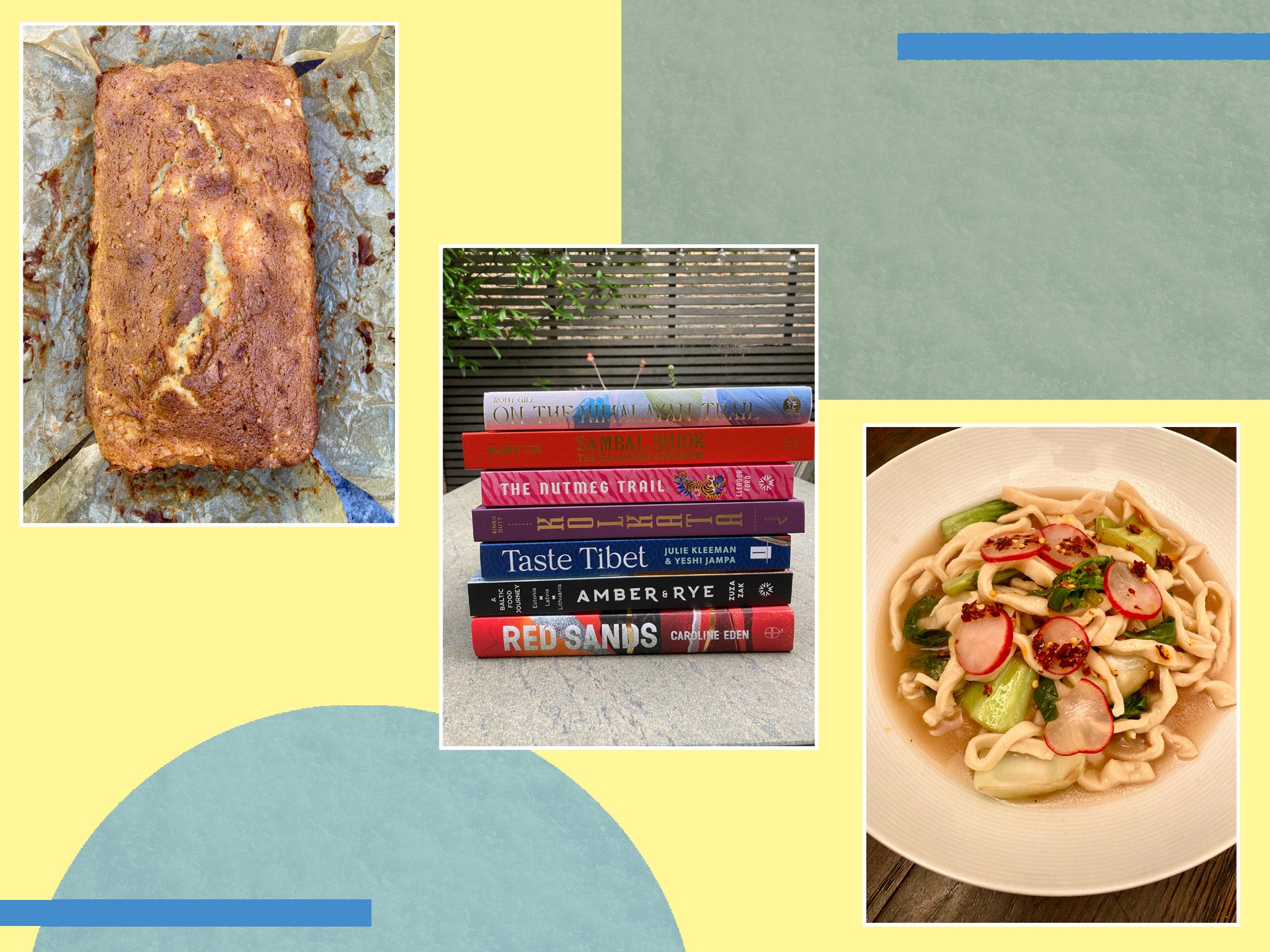
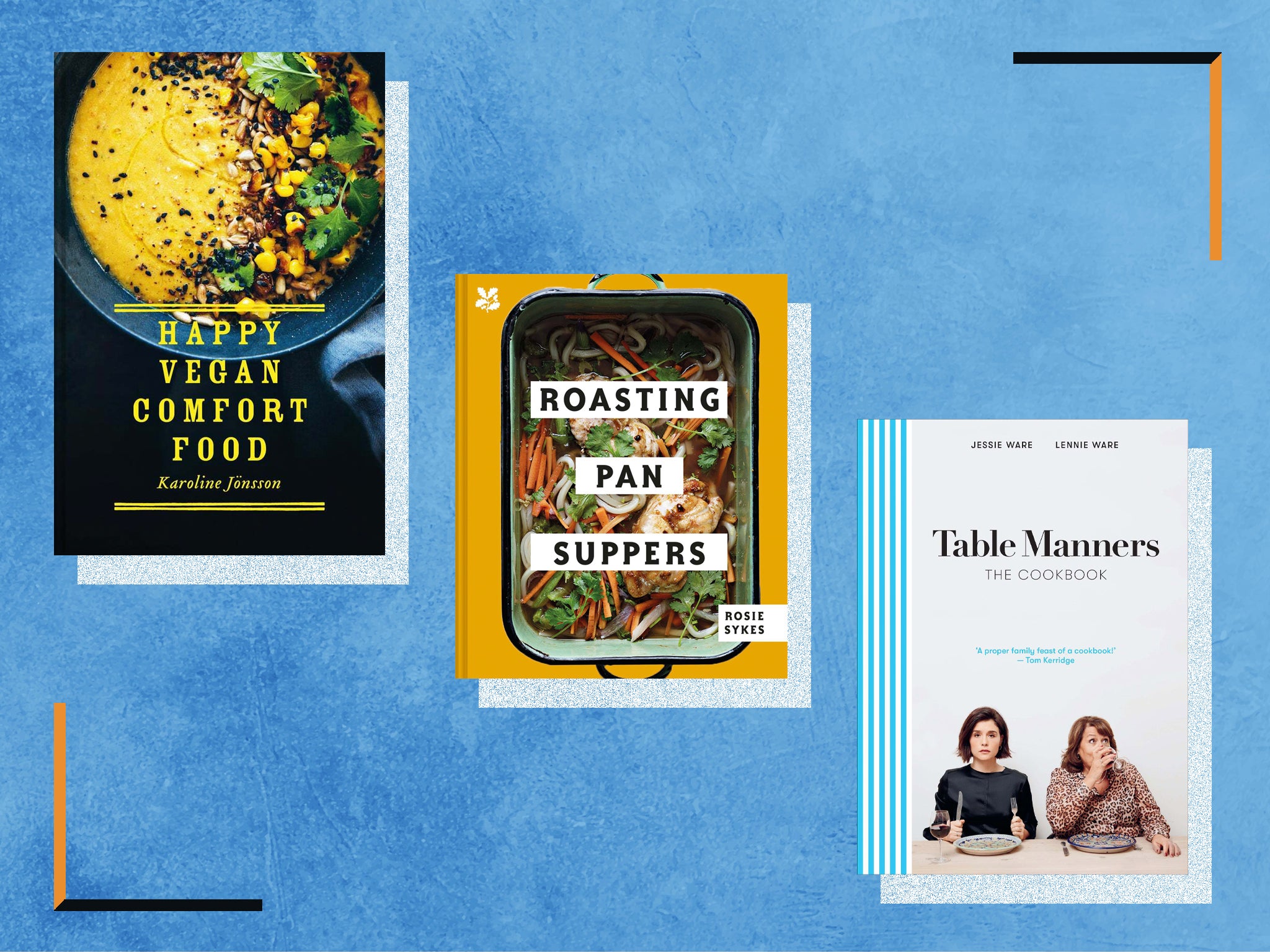

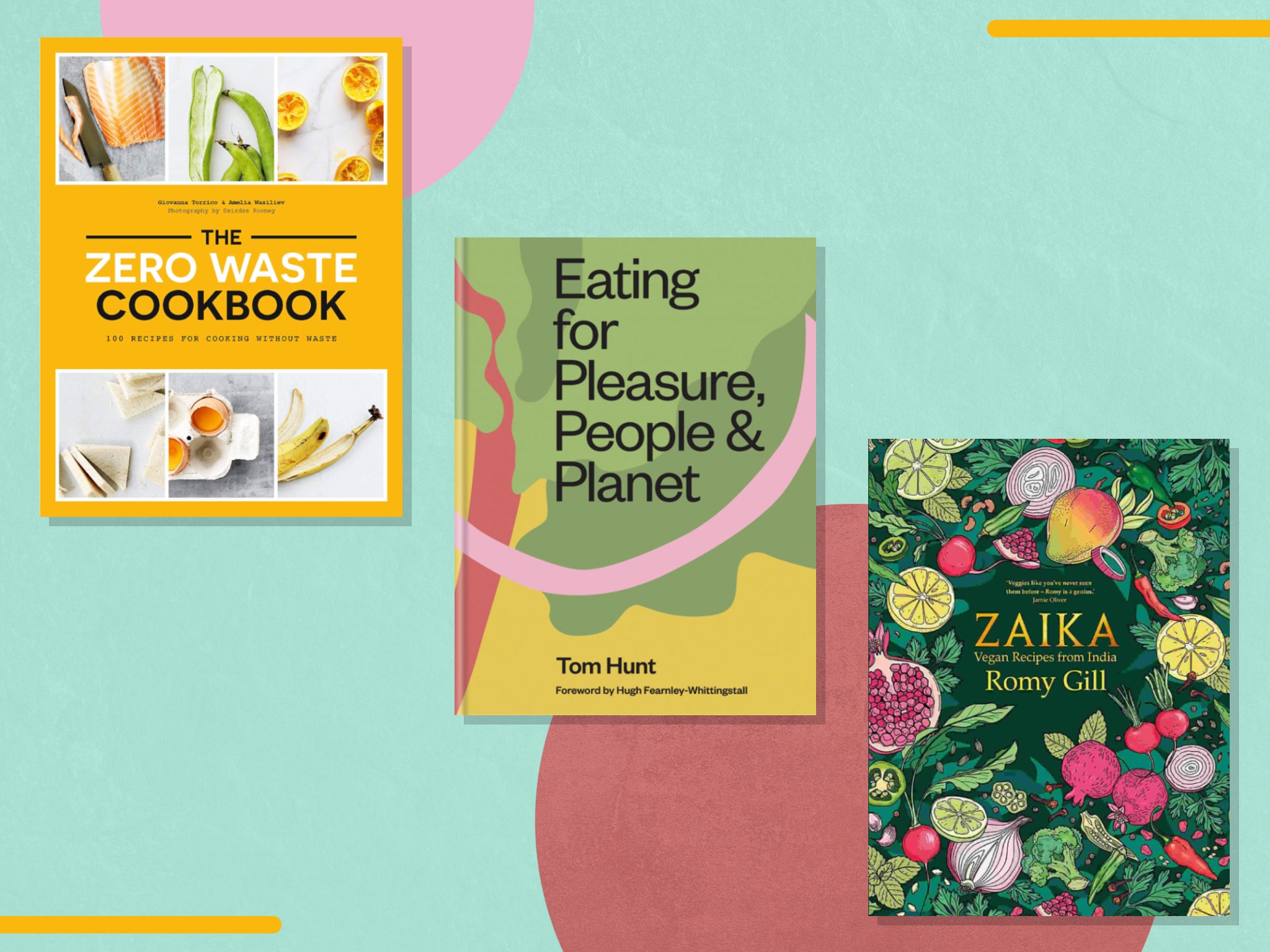
Bookmark popover
Removed from bookmarks